|
Potentially present (PP)
Melitaea aurelia / Nickerl's Fritillary
Aureliana
Nymphalidae - Nymphalinae
Melitaea aurelia Nickerl, 1850. TL: Erlangen, Germany.
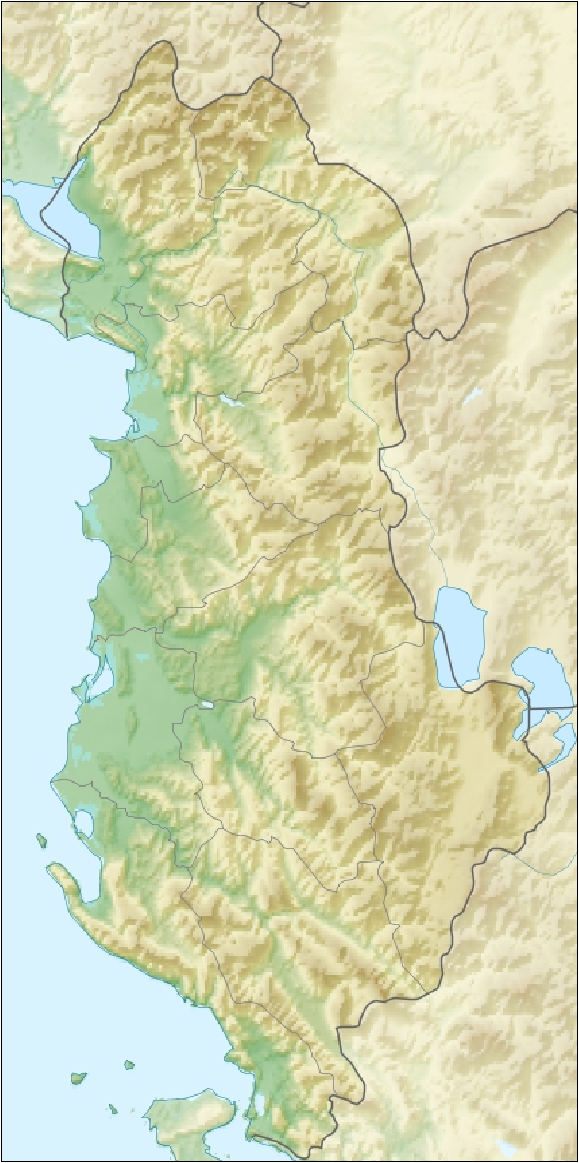 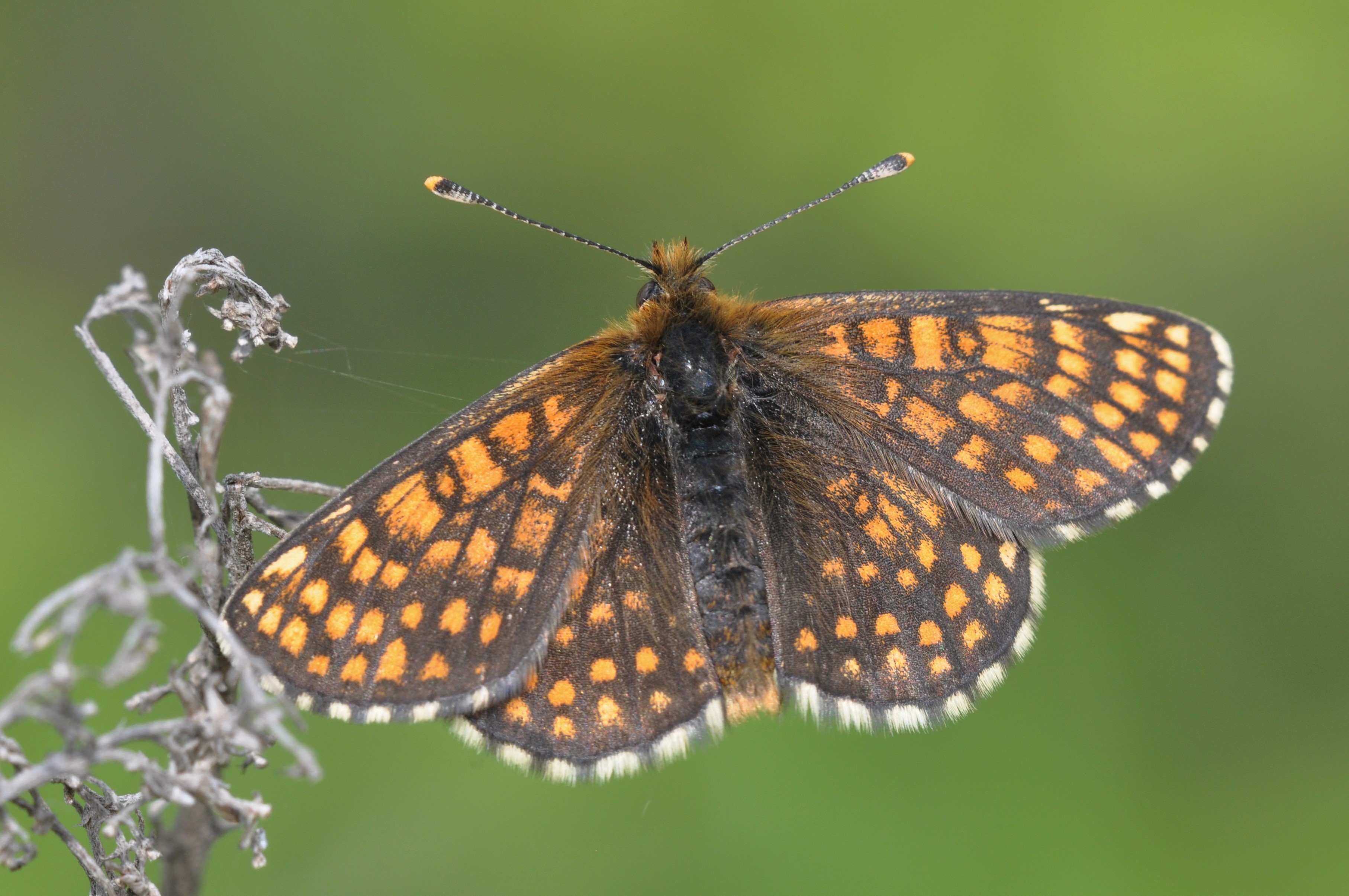
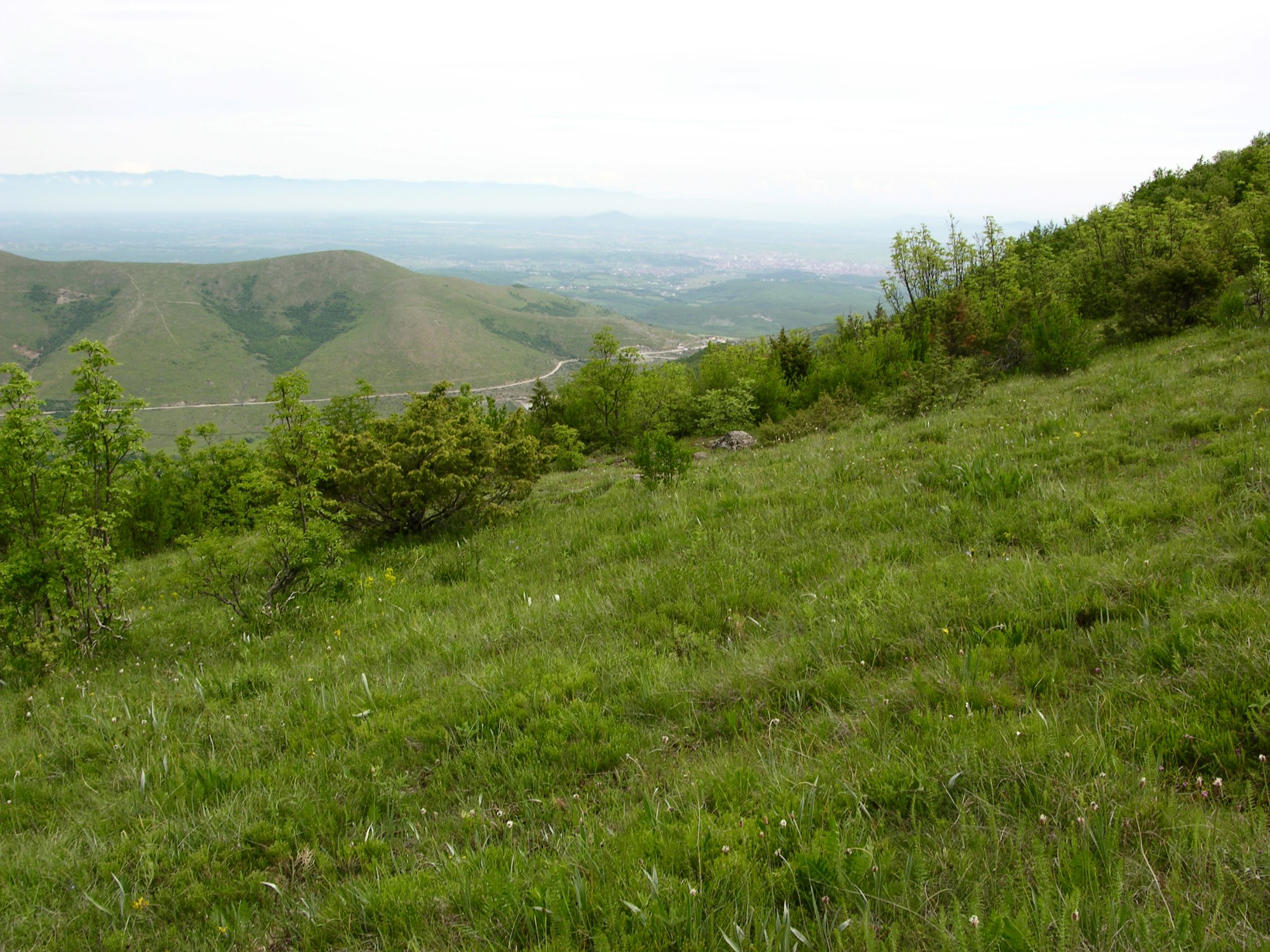 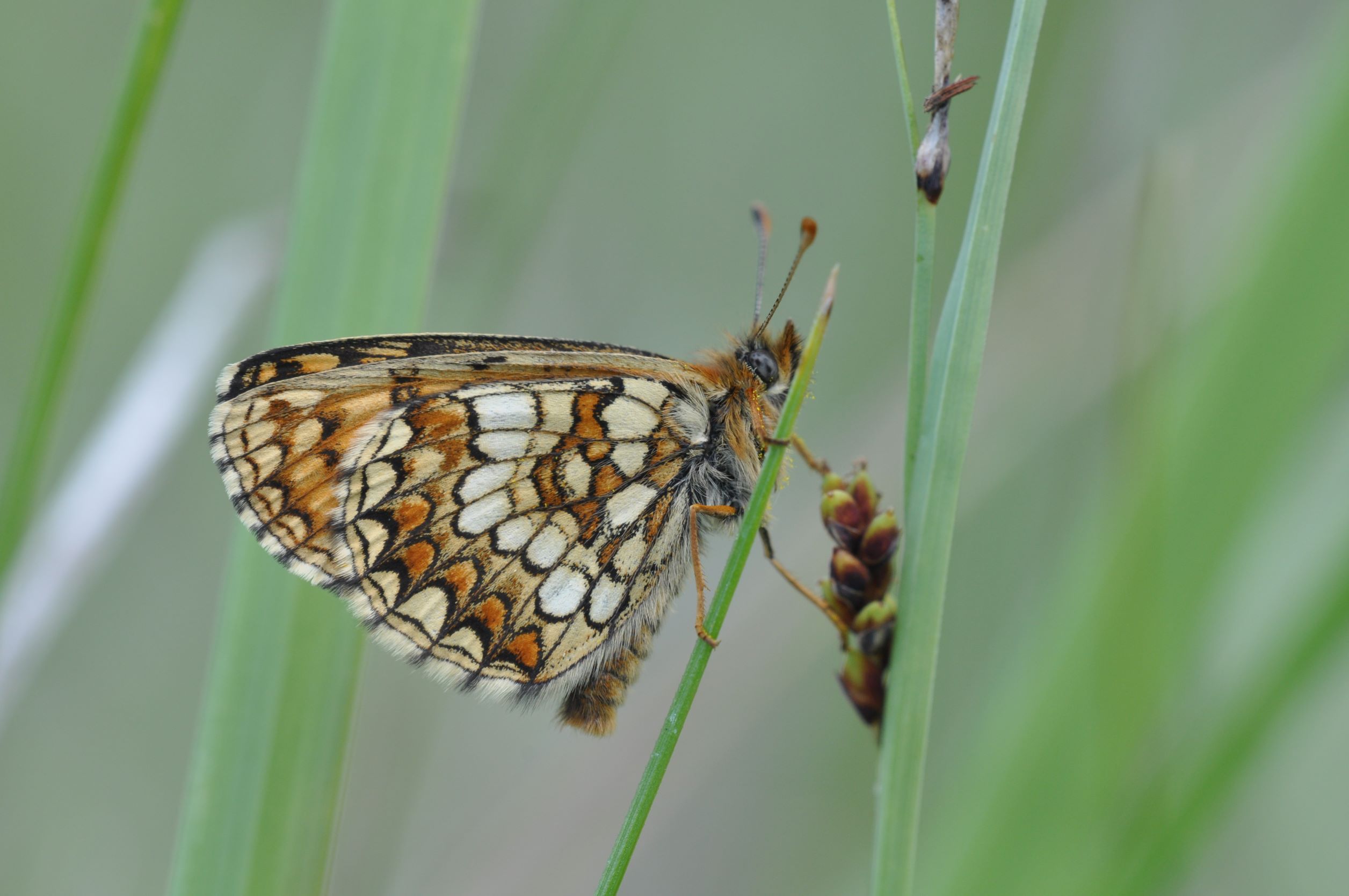
1a. Melitaea aurelia, distribution map (09.i.2025).  Historical data ; Historical data ;  Additional data from the 2018 update ; Additional data from the 2018 update ;  New observations since the 2018 update. New observations since the 2018 update.
1b. Melitaea aurelia ♂ upperside. Belgium (© Sylvain Cuvelier)
1c. Habitat with Plantago lanceolata, foodplant of Melitaea aurelia. Oplasi Mt., Albania (© Donald Shuka)
1d. Melitaea aurelia ♂ underside. Belgium (© Sylvain Cuvelier)
Note
The species has been found in MNE (Švara et al. 2015), NMK (Micevski et al. 2009) and GR (van der Poorten & Cuvelier 1997) and potential biotopes are present in many Albanian mountain areas. This species can easily be confused with the common Melitaea athalia (Rottemburg, 1775).
Melitaea aurelia is single brooded and on the wing from June to mid-July.
The biotopes are nutrient poor grasslands with abundant Plantago lanceolata and sometimes Veronica sp.
M. aurelia does not support too intensive grazing.
Small Melitaea males need to be sampled for dissection for a conclusive identification.
Searches can be focused on a wide area from the North Albanian Alps to the hills near Lake Prespa.
Description
♂♂
Small butterfly. Fw: 14-16 mm.
Ups: orange buff gc, black markings regular and complete, some dusky suffusion.
Unf: s1b, s2 (s3) weakly marked, grey inner border of yellow-orange marginal lunules.
Unh: yellow to yellow-orange coloration of marginal line.
♀♀
Sligthly larger.
Ups: paler gc, some variation between yellowish orange and orange.
Similar species
Identification between Melitaea aurelia and M. athalia, based on external morphology, including color of the palpi, is unreliable (url)
Identification based on genitalia is strongly recommended.
Life cycle
Adults: single generation from June to July.
Egg: 2-3 weeks.
Caterpillar: overwintering as small larva.
Pupa: 16-21 days.
Habitat
Melitaea aurelia inhabits sunny flowery meadows with scattered bushes from 700 up to 1500 m a.s.l.
Spatial requirement is modest, population density often high.
Foodplants
Caterpillars feed on Plantago laceolata, P. media, Melampyrum arvense, M. pratense, Rhinanthus minor and Veronica austriaca.
Butterflies feed on a variety of flowers in the herb vegetation.
Distribution
Albania: not recorded and at the southern limit of its distribution range in the Balkan peninsula.
Balkan: AL - BG - BIH - GR - HR - NMK - MNE - RKS - RO - SLO - SRB
Europe: IB - IT* - ALP - BAL - NWE* - UK - SCA - EEU
Asia Minor, Near East, Transcaucasia, Caucasus and further east.
Conservation status
Melitaea aurelia is not endangered.
Albanian Red List: NA.
IUCN Red List, category at the Mediterranean level: NA.
Useful links
Bink 2015
Pyrgus.de
Lepiforum
Euroleps
|
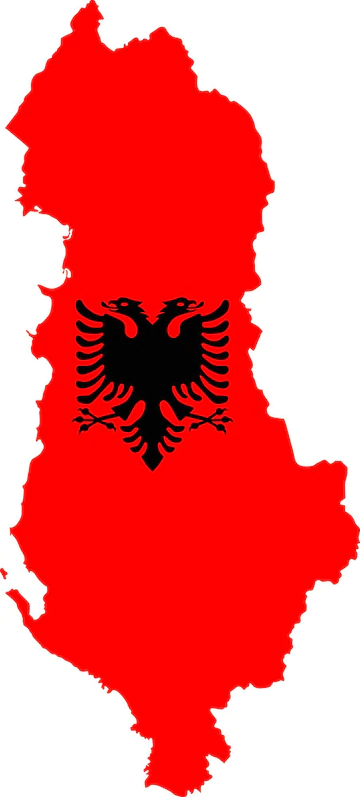 xx
xx 

 Historical data ;
Historical data ;  Additional data from the 2018 update ;
Additional data from the 2018 update ;  New observations since the 2018 update.
New observations since the 2018 update.